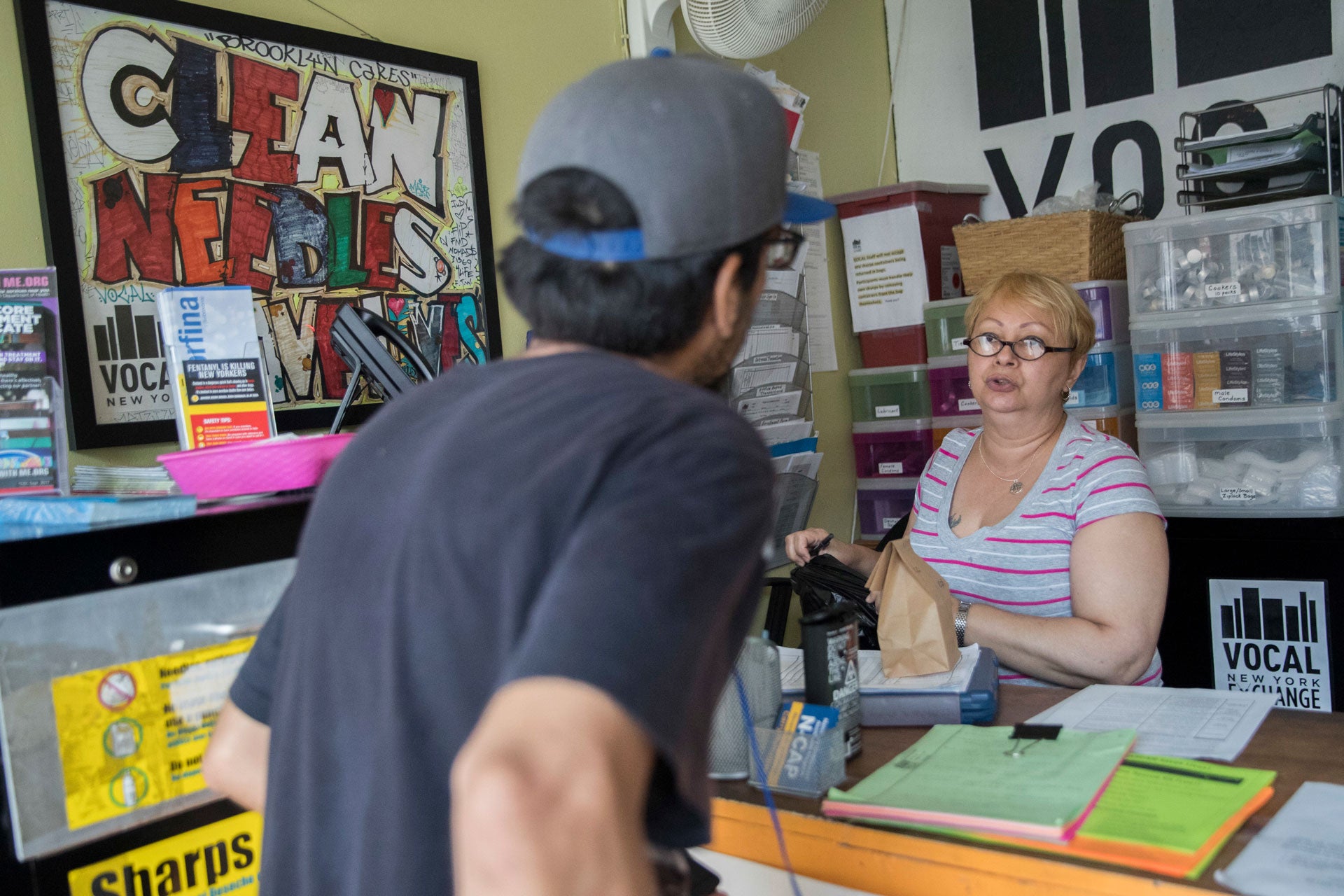The Misguided US Approach to Drug Overdose Deaths

On the heels of news that over 100,000 people in the United States died from drug overdose deaths between April 2020 and April 2021, the US Congress considered a proposal last week that will only deepen the crisis.
The Biden administration proposal would expand Schedule I drugs, the most serious classification carrying the harshest penalties, to permanently include a large class of substances similar in structure to fentanyl without determining whether they are harmful first. This is an unprecedented shift in policy. Normally, substances aren't classified as Schedule I until health agencies measure their potential for abuse and lack of therapeutic potential. This is important because some substances similar in structure to fentanyl, such as over the counter medication Imodium, are not harmful and can help treat people, including those with substance use disorder. But since February 2018, Congress has authorized temporarily putting this class of substances, similar in structure to fentanyl, known as “fentanyl analogues,” in Schedule I as an “emergency” response to the opioid crisis without first testing. Some might be descheduled if later found to be harmless, as is already the case for Imodium, but the sheer number of substances, in the thousands, means that it’s not feasible to test many of them. At the congressional hearing on the proposal last week, Douglas Throckmorton, deputy director for regulatory programs at the Food and Drug Administration, testified that of the approximately 25 substances in the class the agency has tested so far, some, though he didn’t say how many, were “inactive,” and at least one looks like it has important therapeutic capacity.
The new proposal would make this scheduling permanent. More criminalization is unjustified. Since temporary scheduling went into effect, overdose deaths, the majority linked to synthetic opioids like fentanyl, have skyrocketed. Expanded criminalization disproportionately impacts communities of color. Of those sentenced for fentanyl analogues in 2019, nearly 70 percent were Black or Latinx. Also at the hearing, proponents argued it was necessary to deter manufacturers from developing drugs in ways that get around controlled substances laws. But fentanyl-related substances are already illegal, without classwide scheduling. Prosecutors can use the Analogue Act by showing in court that the substance is substantially similar in chemical structure and pharmacological effect. Further, federal prosecutors have mostly targeted minimally involved individuals, only about 10 percent of those prosecuted for fentanyl analogue offenses are alleged importers, large-scale suppliers, or lead organizers. Instead of more criminalization, the Biden administration and Congress should prioritize health-based and rights-respecting solutions. People need drug testing kits to ensure what they’re using is safe, safe injection sites, access to drug overdose reversal agents like naloxone, and affordable and voluntary evidence-based treatment, including Medication-Assisted Treatment (MAT). Last week, New York City made history by opening the nation’s first official overdose prevention centers where some of these services are offered, preventing at least nine overdose deaths in their first few days of operation.
These approaches put the human rights and dignity of drug users and people with substance use disorders first and will help save lives. .
Read the full article at the original website
References:
- https://www.washingtonpost.com/health/2021/11/17/overdose-deaths-pandemic-fentanyl/
- https://energycommerce.house.gov/committee-activity/hearings/hearing-on-the-overdose-crisis-interagency-proposal-to-combat-illicit
- https://inquest.org/follow-the-science-fentanyl-scheduling/
- https://www.youtube.com/watch?v=SMXfPBAkLuk&t=4216s
- https://www.nytimes.com/2021/11/17/health/drug-overdoses-fentanyl-deaths.html
- https://www.ussc.gov/sites/default/files/pdf/research-and-publications/research-publications/2021/20210125_Fentanyl-Report.pdf
- https://docs.house.gov/meetings/JU/JU08/20200128/110392/HHRG-116-JU08-Wstate-ButlerK-20200128.pdf
- https://www.ussc.gov/sites/default/files/pdf/research-and-publications/research-publications/2021/20210125_Fentanyl-Report.pd
- https://harmreduction.org/issues/fentanyl/fentanyl-use-overdose-prevention-tips/
- https://www.hrw.org/report/2017/04/28/second-chance/overdose-prevention-naloxone-and-human-rights-united-states
- https://www.hrw.org/news/2021/10/01/letter-governor-newsom-regarding-hrws-opposition-ab-1542
- https://www.hrw.org/report/2020/07/31/revoked/how-probation-and-parole-feed-mass-incarceration-united-states#2403
- https://www1.nyc.gov/office-of-the-mayor/news/793-21/mayor-de-blasio-nation-s-first-overdose-prevention-center-services-open-new-york
- https://www.nytimes.com/2021/11/30/nyregion/supervised-injection-sites-nyc.html
- https://abc7ny.com/mayor-de-blasio-supervised-injection-needle-exchange-drug-addiction/11300973/
